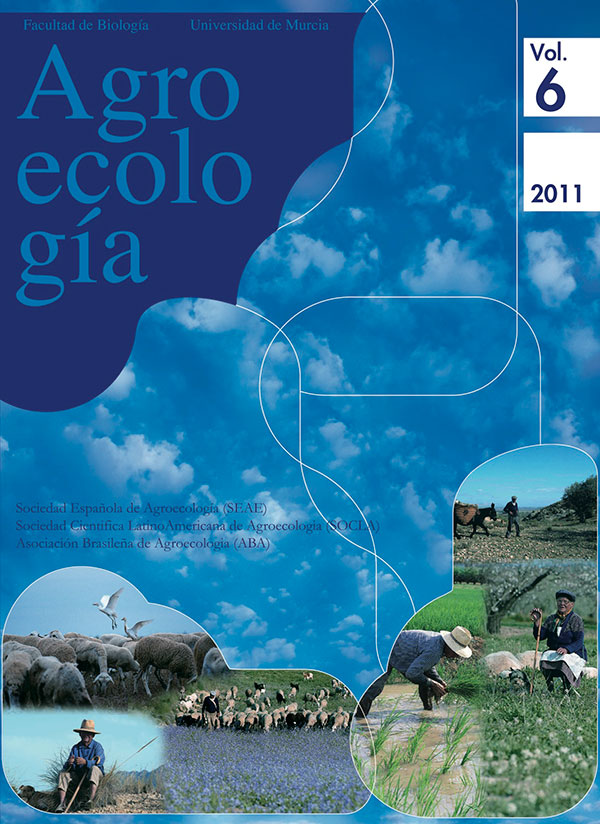Agroecology and Organic Farming. Contributions and synergies to increase agricultural sustainability
Abstract
The environmental and socio-economic crisis of industrialized agriculture has led to the emergence of Agroecology as a theoretical and methodological approach that aims to increase agricultural sustainability from an ecological, social and economic perspective. Organic farming (OF) is the most consistent implementation of this strategy and has grown dramatically all over the world. OF increases the complexity of agricultural systems and strengthens ecological processes (nutrient cycling, natural pest control ...) needed to increase agricultural sustainability. In addition, OF provides a wide range of environmental services: improves soil and water quality, promotes biodiversity, increases energy efficiency and greenhouse gases sequestration. However, the serious problems of agricultural unsustainability cannot be solved only with a technological change to lessen environmental impacts. Although technological change is important, it is also necessary to change the agri-food system as a whole. This article analyses the environmental and socio-economic impact of organic agriculture in Europe and Latin America. Although there has been significant progress, it is necessary to face many challenges. Agroecology as a scientific approach can help to overcome these challenges, generating proposals to transform the agri-food system.Downloads
Las obras que se publican en esta revista están sujetas a los siguientes términos:
1. El Servicio de Publicaciones de la Universidad de Murcia (la editorial) conserva los derechos patrimoniales (copyright) de las obras publicadas, y favorece y permite la reutilización de las mismas bajo la licencia de uso indicada en el punto 2.
2. Las obras se publican en la edición electrónica de la revista bajo una licencia Creative Commons Reconocimiento-NoComercial-SinObraDerivada 3.0 España (texto legal). Se pueden copiar, usar, difundir, transmitir y exponer públicamente, siempre que: i) se cite la autoría y la fuente original de su publicación (revista, editorial y URL de la obra); ii) no se usen para fines comerciales; iii) se mencione la existencia y especificaciones de esta licencia de uso.
3. Condiciones de auto-archivo. Se permite y se anima a los autores a difundir electrónicamente las versiones pre-print (versión antes de ser evaluada) y/o post-print (versión evaluada y aceptada para su publicación) de sus obras antes de su publicación, ya que favorece su circulación y difusión más temprana y con ello un posible aumento en su citación y alcance entre la comunidad académica. Color RoMEO: verde.





